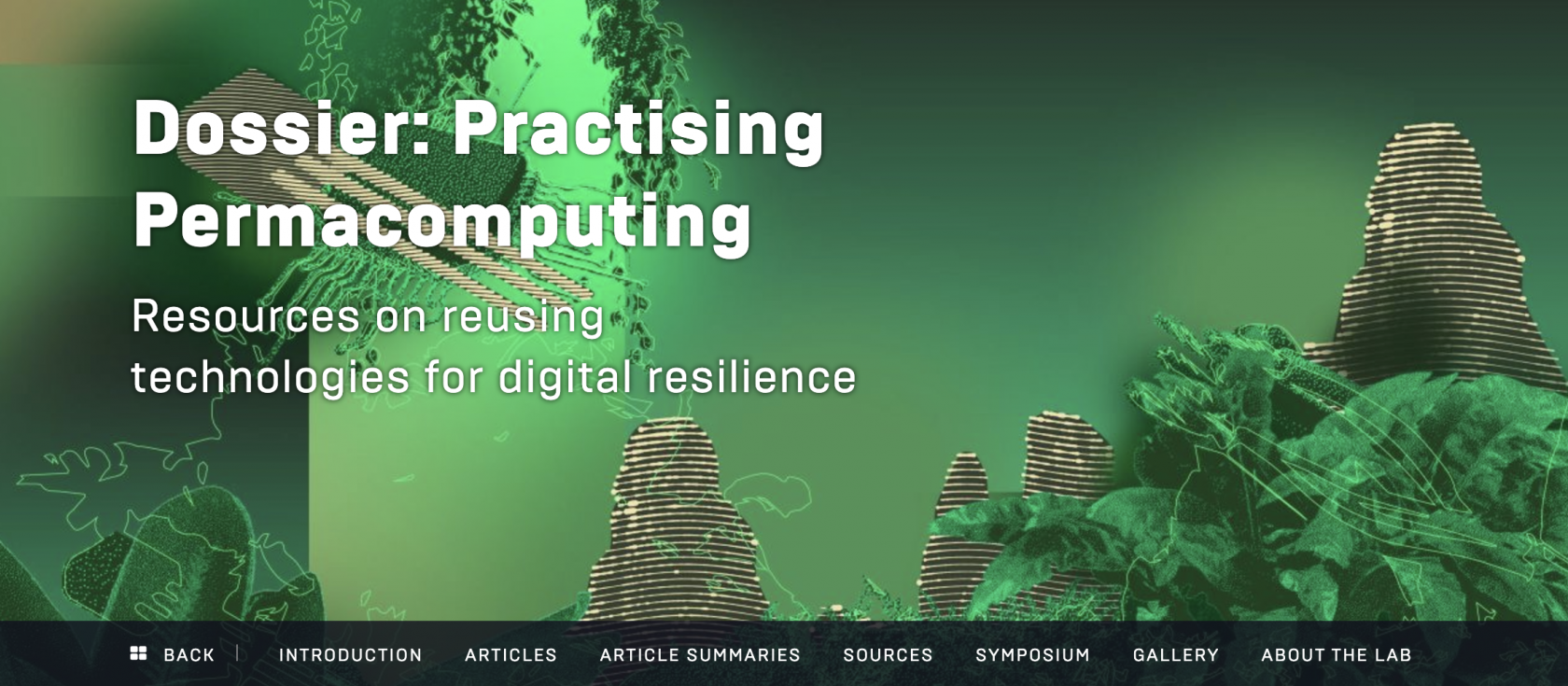Permacomputing: Wiki en introducties
Permacomputing.net is de permacomputing wiki, en de meest centrale plek voor informatie over het onderwerp.
Permacomputing is both a concept and a community of practice oriented around issues of resilience and regenerativity in computer and network technology inspired by permaculture. ପໄଓ☾☼✫ -☆:*´
There are huge environmental and societal issues in today's computing, and permacomputing specifically wants to challenge them in the same way as permaculture has challenged industrial agriculture. With that said, permacomputing is an anti-capitalist political project. It is driven by several strands of anarchism, decoloniality, intersectional feminism, post-marxism, degrowth, ecologism.
Permacomputing is also a utopian ideal that needs a lot of rethinking, rebuilding and technical design work to put in practice. This is why a lot of material on this wiki is highly technical.
Most importantly, there is no permacomputing kit to buy. See permacomputing as invitation to collectively and radically rethink computational culture. It is not a tech solution searching for a problem. You are free to start your own initiative and use the term permacomputing, however please make sure you understand the purpose and ethos of this project :)
Permacomputing introductie door Arnaud Loonstra op het blog van HKU programma Creatieve Technologie
Terwijl ik hier zit te typen, geniet ik van een album van Quazar uit 1991 op YouTube. Plotseling vraag ik me af waarom mijn computer zo traag is. Een snelle zoektocht onthult al snel een nieuw probleem. Als een verstandige internetgebruiker heb ik een ‘adblocker’ in mijn browser geïnstalleerd. Maar YouTube lijkt een oorlog te voeren tegen adblockers, waardoor YouTube een groot deel van mijn computerkracht opslokt. Zelfs als ik niks doe.
Na een meting schat ik het extra stroomverbruik van mijn computer hierdoor op zo’n 30 watt. YouTube heeft zo’n 122 miljoen dagelijkse gebruikers, waarvan 37% desktop computer gebruikers zijn. Stel je voor dat iedereen een uurtje YouTube open heeft staan in de browser, ook als ze er niets mee doen dus. Dan kunnen we uitrekenen hoeveel energie er wordt verspild: 30 watt x 122.000.000 x 0,37 = 1.354.200.000 wattuur. Dat komt neer op 1.354.200 kWh per uur, allemaal omdat een groot bedrijf niet kan accepteren dat ze ons geen advertenties kunnen tonen. Ter vergelijking: een gemiddeld huishouden in Nederland verbruikt zo’n 2500 kWh per jaar.
(lees hier verder)
Branch / Care for life, care for the chips: the future is re-used, recycled and permacomputing, Alistair Alexander
“I really feel that through this practice, I give myself constraints,” says Ola, “It actually makes me feel more empowered, gives me this agency, and actually I am being more mindful in a way, with how I live with technology.” Artist researcher Ola Bonati is talking about permacomputing, a small and thriving community of practice inspired by permaculture, whose principles include “Care for life, Care for the chips”.
When we think about the sustainability of technology, the focus is often on the large and growing energy costs of running those technologies, both on our devices and in the cloud.
But focusing on usage ignores the bigger picture; an estimated 80 per cent of carbon emissions from our smartphones and laptops1 has already been emitted before we first use them, that is, from their manufacture. And for cloud computing, the “embedded” carbon in a data centre powered by renewable energy can be 50 per cent, or more2 . (lees hier verder)
Fiber Festival / Dossier: Practising Permacomputing. Resources on reusing technologies for digital resilience

